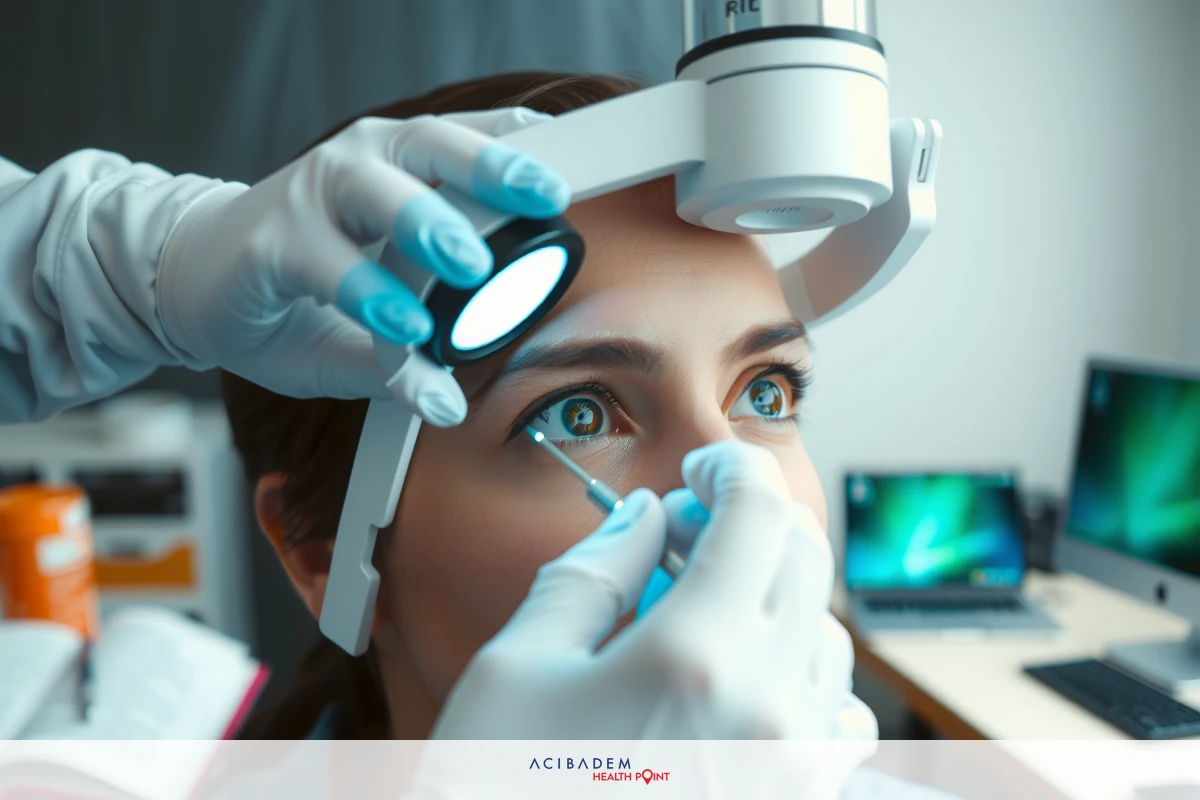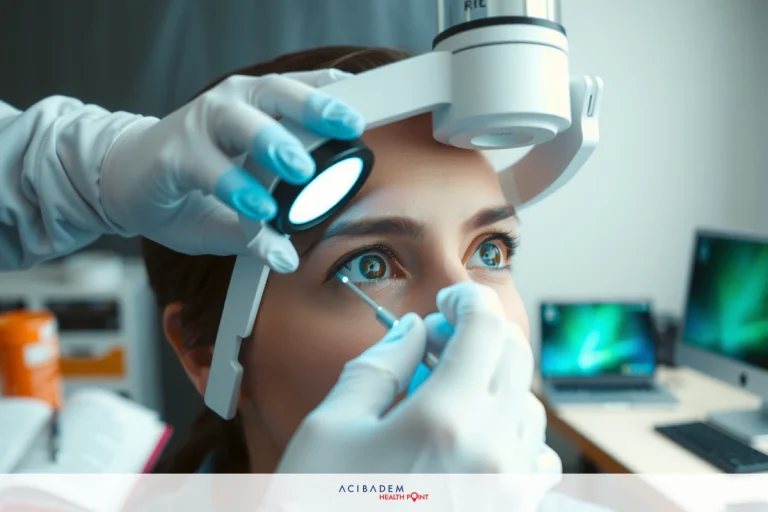What Is LASIK for Eyes
What Is LASIK for Eyes LASIK, an acronym for Laser-Assisted In Situ Keratomileusis, has grown in popularity as a choice for vision correction. This surgery employs a laser to reshape the cornea and improve refractive errors. With its ability to correct nearsightedness, farsightedness, and astigmatism, it serves as an appealing alternative to glasses or contact lenses.
The process of LASIK involves creating a thin flap on the eye’s surface before adjusting the underlying corneal tissue with precision. Once revised, this flap is then laid back into position where it heals over time. The recovery period tends to be swift, many patients report noticeable improvements in their vision within days of undergoing LASIK.
What Is LASIK for Eyes Is LASIK Right for You?
When considering LASIK as a solution for vision correction, it’s essential to evaluate whether you’re an ideal candidate. Factors such as your eye health, the stability of your vision and certain lifestyle factors can influence this suitability. For instance, if you possess good general health with no diseases that might affect healing post-surgery, such as autoimmune conditions or diabetes, then you are more likely to be suitable.
A significant factor in determining candidacy for refractive surgery is corneal thickness. As LASIK involves reshaping the cornea using a laser during which part of the corneal tissue gets removed – having enough corneal tissue is crucial. People with thin corneas may not qualify for traditional LASIK but could still potentially benefit from other forms of vision correction surgeries at an expert eye clinic.
Equally important is understanding that while advanced technologies make LASIK a safe option for many people – it isn’t foolproof. It may not completely eliminate dependency on glasses or contact lenses particularly in older adults who require reading glasses due to presbyopia. Condition where the eyes lose ability over time to adjust focus between near and distant objects- something that standard lasers used in refractive surgery do not correct.
The type and severity of your refractive error also play a role in assessing your suitability. Candidates with mild to moderate nearsightedness have historically achieved the most success with LASIK whereas those with high degree myopia (nearsightedness), hyperopia (farsightedness) or astigmatism should discuss their options thoroughly with their ophthalmologist.
Deciding whether LASIK is right for you often comes down to weighing up these various considerations under professional guidance. After all, every individual’s eyes are unique – what works well for one person might not suit another equally effectively!
The LASIK Procedure
The process of performing a LASIK eye surgery is intricate and involves several steps. Each phase contributes to the overall goal of reshaping your cornea and improving your vision. Let’s explore each stage in detail.
- Preparation: Before the procedure begins, numbing drops are applied to ensure comfort throughout the operation.
- Creating the Corneal Flap: A device known as a microkeratome or femtosecond laser is used by surgeon to create a thin flap on the surface of the cornea.
- Reshaping the Cornea: Once this flap has been created and gently lifted, an excimer laser – which produces cool ultraviolet light- is employed to remove microscopic amounts of tissue from within the cornea thereby altering its shape for better refraction (bending) of light through it.
- Flap Repositioning: After reshaping, Surgeon repositions that same flap back onto its original place where it adheres naturally without needing stitches.

A professional setting, likely a clinic or lab. A female patient is seated while being examined by an optician. The environment has modern tech devices like monitors and laptops suggesting a technologically advanced facility. - Post-Surgery Care: Protective shields might be placed over eyes briefly post-procedure to prevent rubbing or pressure while they heal initially – you may experience some discomfort but this usually subsides within few hours.
Each step in LASIK requires precision and expertise given we’re dealing with such delicate structures like our eyes! It’s essential therefore that one chooses an experienced ophthalmologist at a reputable eye clinic for their refractive surgery needs.
Recovery and Results
Following a LASIK procedure, you enter the recovery phase – this period is as vital as the surgery itself. It starts with a brief post-operative examination by your eye surgeon to ensure everything went according to plan. Afterwards, it’s common for patients to rest their eyes and even sleep for several hours in order to promote healing.
During the first few days of recovery, many experience mild discomfort or itching in their operated eyes. Pain medication isn’t usually necessary after LASIK; over-the-counter analgesics are generally sufficient if needed at all. Vision might be hazy or blurry initially but clarity improves progressively over time – often within mere days! Most individuals can return to work and resume daily activities 24-48 hours following surgery, although strenuous physical activity should be avoided for about a week.
In terms of visual improvement, each patient’s results will vary based on individual factors such as severity of refractive error corrected and overall eye health among other things. Some may achieve perfect vision immediately while others notice gradual improvement over weeks or months – patience is key during this time!
It’s important however to understand that while LASIK significantly reduces dependence on glasses or contact lenses, it doesn’t always result in 20/20 vision without them – especially for those with severe nearsightedness/farsightedness or astigmatism before surgery.
While side effects like dry eyes, glare/halos around lights etc., can occur temporarily after LASIK these tend to resolve themselves over weeks/months leaving most patients satisfied with their improved vision quality courtesy this innovative refractive surgery.
Despite its high success rate & safety profile –LASIK like any surgical procedure has potential risks/complications so informed decision-making under professional guidance remains crucial!
Frequently Asked Questions
What is LASIK eye surgery?
LASIK, or Laser-Assisted In Situ Keratomileusis, is a form of refractive surgery that uses laser technology to reshape the cornea in your eyes. This process corrects vision errors such as nearsightedness, farsightedness, and astigmatism.
How long does the LASIK procedure take?
The actual laser treatment usually takes less than a minute for each eye. However, you can expect to be at the clinic for about an hour and a half due to preparation processes and post-surgery examinations.
Is LASIK painful?
No, most patients report feeling only slight discomfort during the procedure thanks to numbing drops applied beforehand. Post-operatively there might be mild discomfort/itching which generally subsides within few hours.
Will I need glasses after having LASIK surgery?
While many people find they no longer require corrective lenses after undergoing LASIK, this isn't guaranteed - particularly those with severe refractive errors preoperatively or older adults needing reading glasses due presbyopia –a natural aging change.








